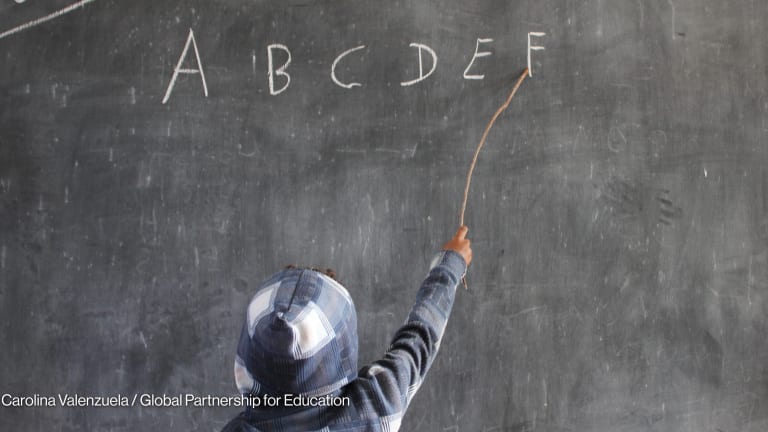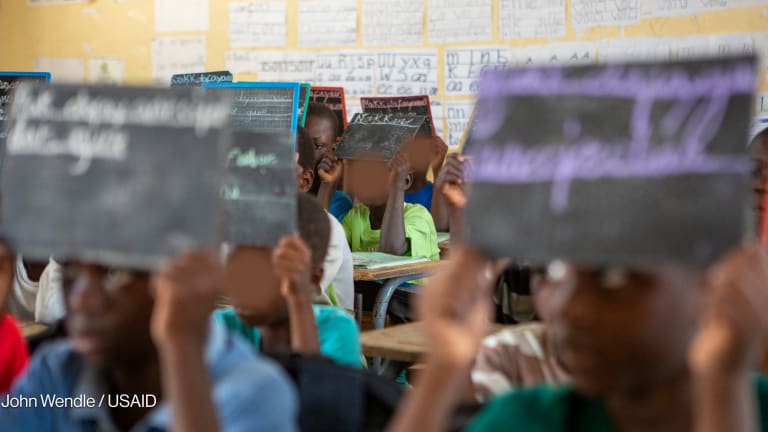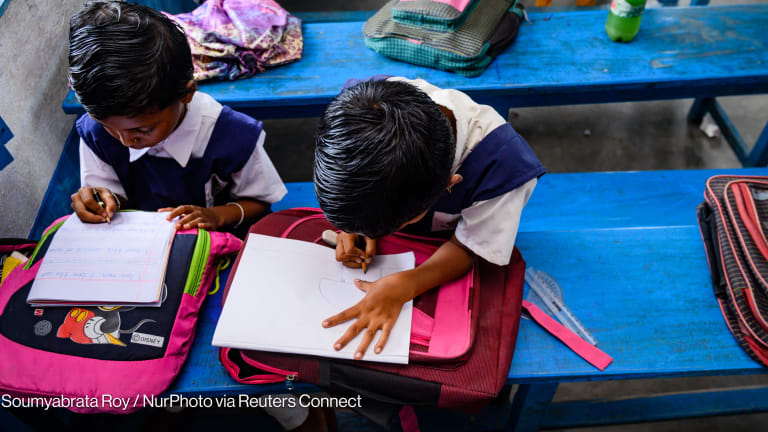
The United Kingdom has an admirable record as a global leader in the alleviation of poverty and the delivery of emergency aid.
In the late 1990s, it was among the first countries to see sense in the arguments for international debt relief. It has played a key role in creating initiatives such as the Global Fund, an international partnership to combat AIDS, tuberculosis, and malaria, contributing £2.8 billion ($3.4 billion) to date. It has been the leading government donor to Gavi, the Vaccine Alliance, a private-public partnership to provide vaccinations across the developing world, supporting the organization since its inception in 2000.
Boris Johnson has made his first announcement on global development since becoming prime minister, announcing £90 million to Education Cannot Wait, a fund for children in emergencies, at the recent G-7 meeting in Biarritz.
It is a start. But the U.K. government must now build on this.
Sign up to our special edition newsletter
For daily updates from UNGA, Sept 17-24, delivered straight to your inbox.
At the United Nations General Assembly in September, it can demonstrate this dimension of its leadership once again by committing substantially more to educating the world’s less fortunate, poorly served children, and at the same time encourage other donors to follow suit.
Civil society organizations, including Theirworld, are asking the U.K. to pledge a minimum of £400 million in grants and guarantees to a ground-breaking new way of supporting education systems globally.
The International Finance Facility for Education has been created by a coalition of governments, multilateral agencies, and banks, with civil society, to assist countries that are committed to development and reform of education.
Donor countries such as the U.K. will provide grants and guarantees, which can then be leveraged on the financial markets into inexpensive finance to be used for education systems. For every $1 an additional $4 can be raised for investment in education.
Over time, IFFED could enable 200 million more children to go to school and prepare for a productive working future. It has the potential to be the biggest single educational investment in history. To start on schedule next year, IFFED needs roughly $1 billion in donor guarantees. The U.K. is among a group of countries that has indicated its support for IFFED so far, and which could make the first pledges of grants and guarantees in New York.
At the same time, we’d like to see more countries — and, ideally, the U.K. in the future — give more to Education Cannot Wait, which has already reached 1.3 million children and youth. With more than 75 million children and young people currently in urgent need of educational support in 35 crisis-affected countries, $1.8 billion is needed through a global trust fund and country-level co-financing throughout the next few years.
The U.K. antipoverty leadership role has at times, attracted domestic controversy, especially the legal commitment to spend 0.7% of gross national income on overseas aid.
UNESCO issues dire projections for 2030 education targets
"It appears that we’re resigned to failure" on SDG 4, Joseph Nhan-O'Reilly, head of education policy and advocacy at Save the Children, tells Devex.
But with Brexit looming, and all the debate it brings about the U.K.’s future influence on the world stage, the good news is that the U.K. has an immediate, high profile opportunity on the biggest diplomatic platform there is, to prove its willingness to remain globally relevant.
Education has always been one of the new prime minister’s stated priorities. Upon taking office in July he pledged to increase school budgets in the U.K. and expressed his support for raising educational opportunities internationally, highlighting the "right of every girl in the world to 12 years of quality education."
The prime minister was right to identify education as a pressing challenge. But it is much more than that. More silent than climate change, and more threatening to peace, security, and growth, we are in the middle of a global education crisis.
There are more than 260 million children worldwide who are not in school today. On current trends, more than half the world's children and young people — 800 million — will by 2030 not possess the basic skills or knowledge required to join the modern workforce.
Without the wherewithal to be productive participants in society, they will be more vulnerable to poverty and poor health, and, in some parts of the world, more vulnerable to extremism, violence, and exploitation. Girls, as ever, will be the most at risk.
With much bolder declarations of support for the world’s under-served children, the U.K. can honor its fine legacy as a pioneer in poverty reduction and a dedicated provider of humanitarian assistance.








